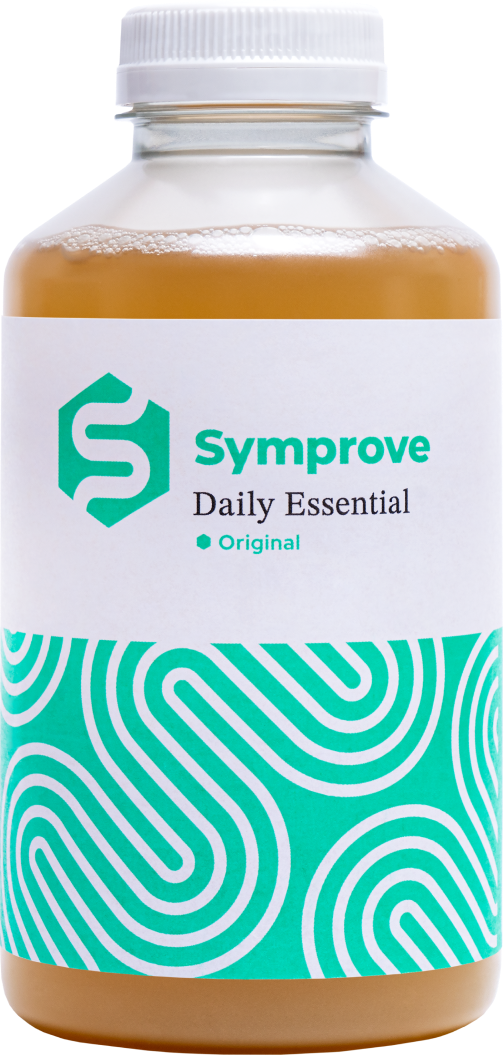Toral Shah, nutritional scientist, functional medicine practitioner and founder of The Urban Kitchen is here to talk to us about the gut microbiome and menopause.
One of the most exciting areas of research over the last 10 years has been the understanding of how the gut microbiome impacts upon a wide range of physiological functions, as well as overall physical and mental health. We know that the gut microbiome can induce inflammatory and metabolic changes, modulate our immune system, mood, and much more. Interestingly, emerging research shows that the gut microbiome plays a key role in hormonal regulation, including oestrogen.1 The specific collection of bacteria and their genes within the gut microbiome that are thought to metabolise oestrogen and oestrogen-like metabolites has been coined the ‘estrobolome’.
What is oestrogen and what is its role?
Oestrogen is a female sex hormone and has many fundamental physiological roles including maintenance of female reproductive health, regulating body composition, musculoskeletal systems, cardiovascular health,2 and cognitive health. During menopause, estrone (a less biologically potent form of oestrogen) is produced.
Introducing the estrobolome
There appears to be a bidirectional relationship between the gut microbiome and oestrogen – the gut microbiome has been shown to be affected by oestrogen, while also playing a role in modulating oestrogen levels.1
Studies have shown that the estrobolome regulates endogenous oestrogen through oestrogen-metabolising enzymes (beta-glucuronidases). These enzymes, secreted by the estrobolome, deconjugate oestrogens into their ‘active form’ allowing for re-absorption into blood circulation and enabling them to reach other tissue sites in the body. The Human Microbiome Project found over 50 species of gut bacteria that can produce beta-glucuronidases, expressed in 4 main phyla, namely Bacteriodetes, Firmicutes, Verrucomicrobia and Proteobacteria.3
Menopause and the gut microbiome
The ageing process has been associated with alterations in the gut microbiome, specifically lower levels of microbial diversity which is often considered a hallmark feature of ‘dysbiosis’ and related to several chronic disease states.4 Interestingly, the presence or absence of oestrogen may influence gut microbial homeostasis and alter development of disease.5 To date, compositional changes and the influence on the gut microbiome in postmenopausal women remain uncertain, though one recent study showed distinct differences in the gut microbiome composition between pre- and post-menopausal women, as well as metabolites produced.6 Furthermore, another study comparing postmenopausal breast cancer patients with postmenopausal healthy controls observed compositional and functional differences in the gut microbiome, indicating an association between the gut microbiome and development of postmenopausal breast cancer.7 Collectively, these results suggest that the gut microbiome may be considered a therapeutic target in the future to potentially reduce the risk of disease development and improve quality of life during and after menopause.
Diet and lifestyle
We know that certain lifestyle factors such as diet (e.g. high-fat/sugar/processed foods) high levels of alcohol consumption and smoking are commonly associated with disruption to the gut microbiome, in addition to medication use such as antibiotics.8 Maintaining a healthy gut microbiome with a plant-based diet focusing on dietary fibre through consumption of fruit and vegetables, whole grains, nuts, seeds, herbs, beans and pulses is recommended to support the gut microbiome, and therefore, the estrobolome too.
Phytoestrogens are naturally occurring compounds abundant in plants (particularly soy) and are structurally similar to endogenously produced oestrogens. Phytoestrogens (main types being isoflavones, ellagitannins, lignans) are metabolised by the gut microbiome into equol, urolithins and enterolignans, respectively and can be considered as oestrogenic or anti-oestrogenic, thus potentially viewed as protective or implicated in oestrogen-driven health conditions. The effects of phytoestrogens are likely to be highly individualised depending on the composition of an individual’s gut microbiome, thus health effects of consumption of phytoestrogens are likely to vary significantly from person to person. This may, in part, explain why several meta-analyses to date investigating the effects of phytoestrogens on menopausal symptoms and bone mineral density have reported mixed results.9
Probiotics
Emerging research shows that probiotic supplementation may support modulation of the estrobolome and may play a potentially protective role against oestrogen-driven health conditions. Animal studies have shown that supplementation of a broad-spectrum Lactobacillus probiotic normalised the reproductive cycle in mice with PCOS,10 whilst Lactobacillus reuteri prevented low oestrogen-related bone loss in menopausal mice models.11 It has been suggested that Lactobacilli supplementation could potentially be used to support breast cancer prevention as Lactobacilli has been found to have anticarcinogenic effects in breast tissue.12 While research into the effects of probiotics and the estrobolome remains in its early stages of investigation, it is plausible that in the future, supplementation may be considered a simple and effective approach to help reduce the risk of oestrogen-related health conditions, particularly after the menopause.
Footnotes
[1] Baker JM, Al-Nakkash L, Herbst-Kralovetz MM. Estrogen-gut microbiome axis: Physiological and clinical implications. Maturitas. 2017; 103:45-53
[2] Baker L, Meldrum KK, Wang M, Sankula R, Vanam R, Raiesdana A, Tsai B, Hile K, Brown JW, Meldrum DR. The role of estrogen in cardiovascular disease. J Surg Res. 2003;115:325-44
[3] Pollet RM, D’Agostino EH, Walton WG, et al. An Atlas of β-Glucuronidases in the Human Intestinal Microbiome. Structure. 2017;25:967-977.
[4] Nagpal R, Mainali R, Ahmadi S, Wang S, Singh R, Kavanagh K, Kitzman DW, Kushugulova A, Marotta F, Yadav H. Gut microbiome and aging: physiological and mechanistic insights. Nutr Healthy Aging. 2018; 4:267-285
[5] Vieira AT, Castelo PM, Ribeiro DA, Ferreira CM. Influence of oral and gut microbiota in the health of menopausal women. Front Microbiol. 2017;1884
[6] Zhao H, Chen J, Li X, Sun Q, Qin P, Wang Q. Compositional and functional features of the female premenopausal and postmenopausal gut microbiota. FEBS Lett. 2019; 593:2655-2664.
[7] Zhu J, Liao M, Yao Z, Liang W, Li Q, Liu J, Yang H, Ji Y, Wei W, Tan A, Liang S, Chen Y, Lin H, Zhu X, Huang S, Tian J, Tang R, Wang Q, Mo Z. Breast cancer in postmenopausal women is associated with an altered gut metagenome. Microbiome. 2018; 6:136
[8] Maier L, Pruteanu M, Kuhn M, Zeller G, Telzerow A, Anderson EE, Brochado AR, Fernandez KC, Dose H, Mori H, Patil KR, Bork P, Typas A. Extensive impact of non-antibiotic drugs on human gut bacteria. Nature. 2018; 555: 623-628
[9] Rietjens IMCM, Louisse J, Beekmann K. The potential health effects of dietary phytoesterogens. Br J Pharmacol. 2016; 174:1263-1280
[10] Guo Y, Qi Y, Yang X, Zhao L, Wen S, Liu Y, Tang L. Association between Polycystic Ovary Syndrome and Gut Microbiota. PLoS One. 2016; 19:11(4)
[11] Britton RA, Irwin R, Quach D, Schaefer L, Zhang J, Lee T, Parameswaran N, McCabe LR. Probiotic L. reuteri treatment prevents bone loss in a menopausal ovariectomized mouse model. J Cell Physiol. 2014; 229:1822-30
[12] Urbaniak C, Gloor GB, Brackstone M, Scott L, Tangney M, Reid G. The Microbiota of Breast Tissue and Its Association with Breast Cancer. Appl Environ Microbiol. 2016; 29:5039-48


